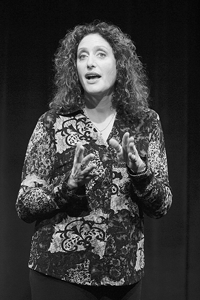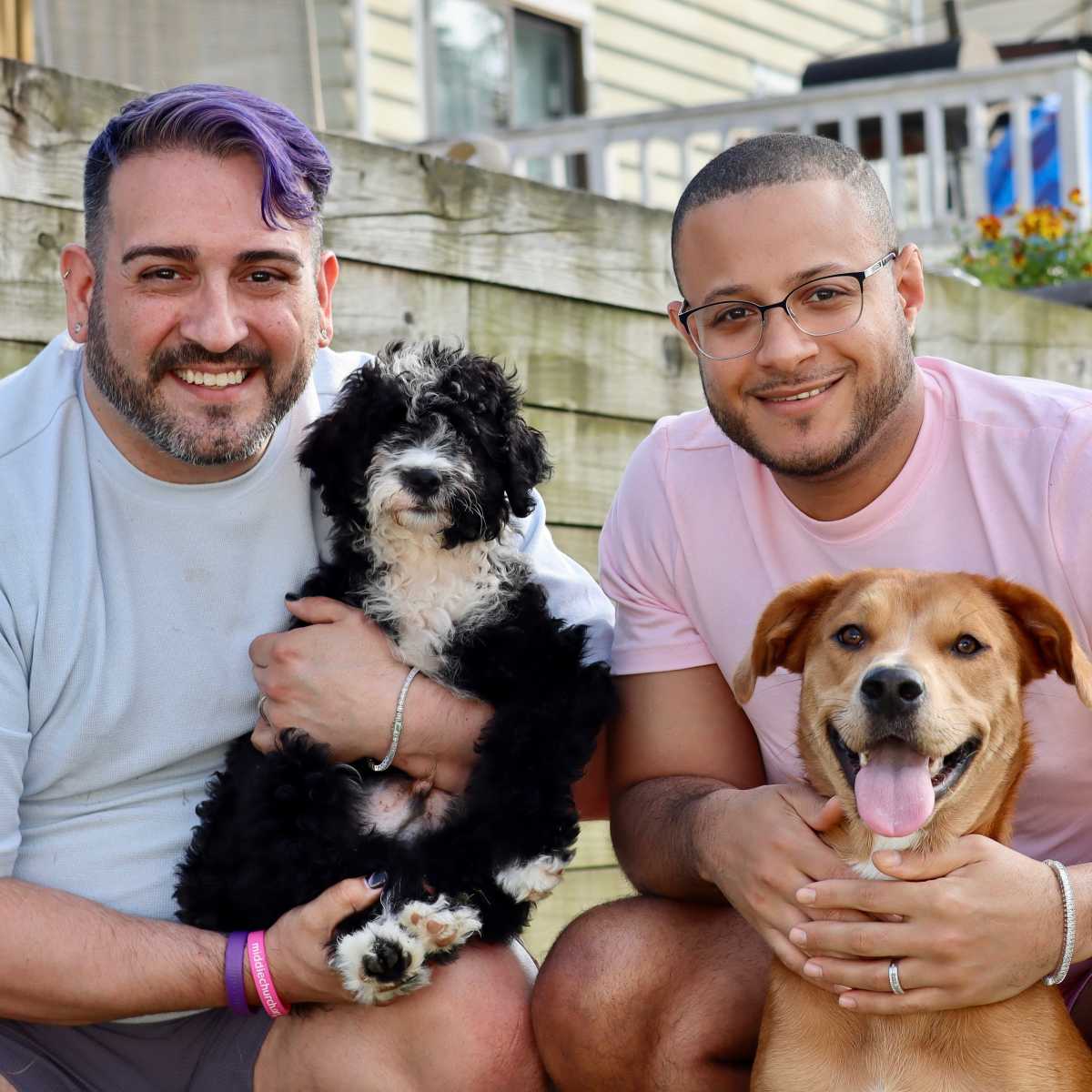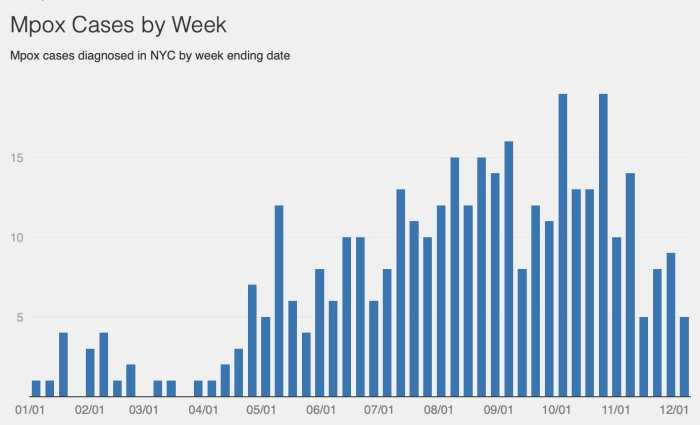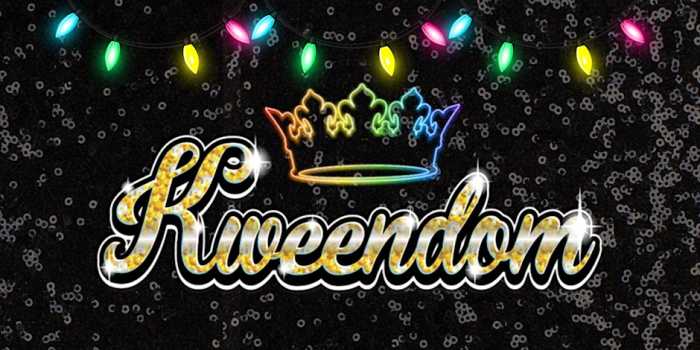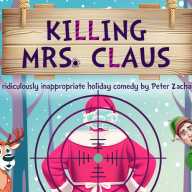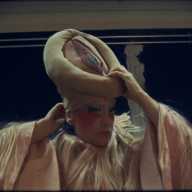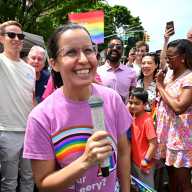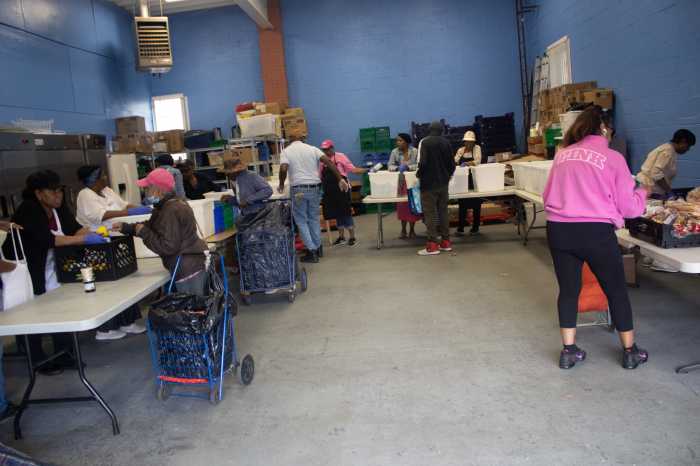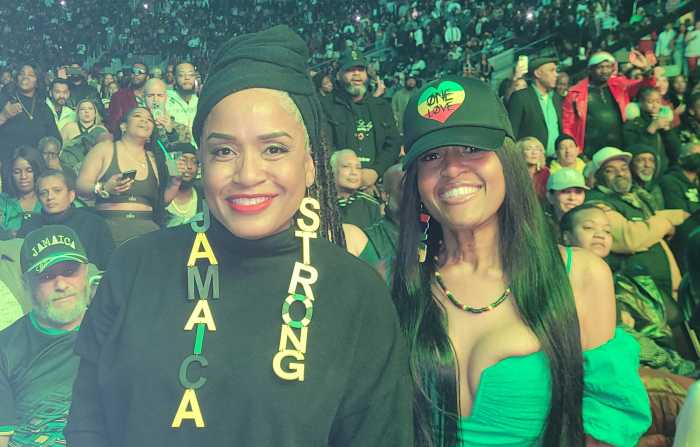Judy Gold gets serious about Jewish motherhood
When we think of the Jewish mother, we think guilt trips, matzoh ball soup, and constant kvetching. Jewish lesbian comedian Judy Gold challenges this stereotype before a packed house at the intimate uptown performance space Ars Nova with her new play, “25 Questions for a Jewish Mother.” Gold is known for her lightning-fast, sometimes caustic sense of humor, and when it comes to big laughs, this show doesn’t disappoint. The best moments, however, come when Gold puts it all on the line and tries a little tenderness.
“I think it’s scary and a bigger risk this way, because the show really is a play. I did not want it to be standup at all,” said Gold in a recent phone interview. As she cursed elderly drivers on her way to her Sunday matinee performance, she deadpanned, “That’s why we made it so tender. Being vulnerable up there… it’s really an honest piece of work, very draining.”
Standing 6’3” with a head of wild curls and the no-nonsense attitude of a New Yorker, Gold is an imposing powerhouse of a performer. She has tackled religion, the male-dominated world of comedy, and being a lesbian, kosher mother of two. But her biggest fear was becoming a typical Jewish mother—paranoid, overprotective, and ultra-religious.
For years, she has gotten laughs by replaying the frantic answering machine message left by her mother after an accidental hang-up, which lists the horrible fates that might be preventing Gold from answering, and ends with the casual, “So long.” It is Gold’s trademark Jewish mother joke, but in this show, she goes behind the laughs to investigate what makes her Jewish mother tick, and to discover, “How I fit into the world of Jewish motherhood.”
Over the past five years, Gold has paired up her appearances in “casino towns” like Reno and Atlantic City with the pursuit of 50 interviews with Jewish mothers of different ages, ethnicities, and occupations. Asking 25 questions such as, “What is God to you?” and “What is your biggest regret?” she gains an understanding of both her own mother and herself as a Jewish mother.
Gold laughs about her miserable childhood in Clark, New Jersey. When it got too bad, she pretended Barbra Streisand was her real mother, blasting “Don’t Rain on My Parade.” She identifies with Judy Blume characters, who grew up in New Jersey, didn’t fit in, and were “harboring a deep, dark secret.” Gold’s “deep, dark secret” is Wendy, “Judith’s roommate; a lovely girl,” as her mother put it.
She describes the two-week standoff between her and her mother after she announces her partner’s pregnancy with their first son, Henry. Having kids made Gold more religious, she said, returning to being kosher and sending her children to shul.
She said she enjoys the tradition of a Friday Shabbas dinner, and takes comfort in keeping a kosher kitchen.
“People have been doing it for thousands and thousands of years,” Gold explained. “It’s incredible we survived and have these traditions, and it reminds my kids, ‘You’re a Jew… and your mother’s a big lesbian.’”
She also said that that having kids made her “fearless” about being out, because she saw how proud her son was with the family they had created, and didn’t want any shame associated with that.
Gold gets laughs by envisioning a Jewish mother as “the best drug dealer ever,” pantomiming the guilt trip they would lay to push drugs, but her best moments comes when she turns serious and inward. She has the ability to tackle gut-wrenching topics including survivors of Auschwitz without becoming morose.
Gold even touches on 9/11, which was her son’s first day of school. She relates having run across Central Park to pick him up, and the look of embarrassment he gave her—the same look she gave her mom upon once finding police eating rugalah in their kitchen because she happened to arrive home 45 late for dinner. She next draws a parallel of sorts to what she learned from some of the 50 mothers she interviewed, who told her that after escaping the Nazis and moving to America, they made a Christian neighbor promise to take care of their kids “should anything like that happen here.”
Gold’s relationship with her own mother has always come with its own set of frustrations and heartaches, and it was only after she and her partner Wendy split up that Gold learned the degree of her mother’s growth. Gold didn’t want to admit she failed, but her mother’s only concern was whether Henry was still her grandchild. “I realized how far she had come,” said Gold.
Through this play, Gold also shows how, in many ways, she has become like her mother—yes, paranoid, overprotective, and ultra-religious. But she is also her own woman—proud to be an openly lesbian, Jewish, female comedian, protective of her family, and happy to discover that being a Jewish mother isn’t the worst thing in the world.
“I redefined what a Jewish mother is,” Gold says. “These women taught me that the world’s take… well, maybe on the outside there are these affectations… but behind that is a story, a person, a human being—these incredible, incredible women. So for me to say I’m a Jewish mother––it’s an honor.”
gaycitynews.com

